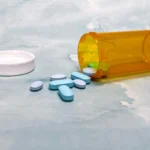Many of the twenty-one million Americans diagnosed with a substance use disorder also struggle with one or more mental health conditions. Depending on the individual and their specific symptoms, they may be aware of only one diagnosis (or the other) before realizing they have a dual diagnosis. Statistics show nearly half of the individuals who seek addiction treatment also meet the diagnostic criteria for a mental health disorder.
Dual diagnosis, also referred to as a co-occurring disorder, is closely connected. Although research does not prove one causes the other, struggles with substance abuse or addiction often lead to maladaptive coping mechanisms and symptoms of new or worsening mental health conditions.
People who struggle with an undiagnosed or even a diagnosed mental health disorder often abuse alcohol or drugs to reduce the intensity of the symptoms they experience. Unfortunately, self-medicating in this way causes side effects, including new or worsening mental health symptoms.
What Is Dual Diagnosis?
When you have a dual diagnosis, it means you have both a substance use disorder and a mental health diagnosis simultaneously. Dual diagnosis conditions often share similar root causes and overlapping symptoms. Treating one disease without acknowledging the impacts of the other is very difficult and not beneficial to you.
If you have a dual diagnosis, the best option is to complete an addiction treatment program at a facility where treatment professionals treat co-occurring disorders. Dual diagnosis treatment enables the individual and the treatment team to address all aspects of the problem. This approach provides the most comprehensive opportunity for recovery.
The Importance of Dual Diagnosis Treatment Centers in California
Data provided by the Substance Abuse and Mental Health Services Administration (SAMHSA) shows that over 8.5 million adults (or approximately 4%) over the age of eighteen struggled with a dual diagnosis in 2017. Most dual diagnosis treatment centers in California offer programs that consist of several components, including detoxification, assessment, treatment, and aftercare. A quality dual diagnosis treatment program includes elements that address both your addiction and mental health needs.
If necessary, depending on the duration and severity of your addiction, the first step in treatment is detox. The detox process helps cleanse your body of substances, allowing you to begin your journey to sobriety safely.
Without detox, it is considerably more difficult to immerse yourself in the therapy process completely. Issues such as cravings, triggers, and even relapse get in the way. During your treatment, you can participate in a range of therapies, including group, individual, and family counseling. In many programs, 12-step programs are also available.
As your treatment comes to an end, your providers work with you to design a robust aftercare plan. This plan includes ongoing therapy and support throughout the earliest (and often most challenging) days of recovery.
Finding the Right Dual Diagnosis Treatment Program
If you struggle with a mental health condition and the symptoms of addiction, dual diagnosis treatment in California is vital to ensure your best opportunity for recovery. Unfortunately, not all addiction treatment programs are equipped to address the unique nature of dual diagnosis treatment.
Although all programs strive to provide evidence-based, comprehensive treatment to help you overcome your struggle with drugs or alcohol, some may not offer adequate co-occurring disorder therapy. Without this therapy, you may not gain a deeper understanding of the roots of both conditions.
Therefore, it is critical to research each program you consider before committing to one that may not meet all your treatment needs. If you would like to learn more about how a dual diagnosis treatment center in California can help you, reach out to the team today.




